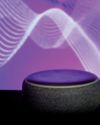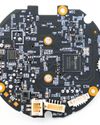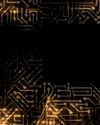
For a few years now I have been experimenting with various IoT devices that I either designed myself, using wireless-SOCs like the ESP32, or using Particle IoT modules that were specifically designed to interact with the Particle cloud server. Therefore, I wasn't familiar with the IoT products made by Blues Wireless over the last 4 years, until I saw a recent press release describing a Blues Wireless IoT module using the LoRaWAN RF protocol for communication between an IoT device and a local gateway. LoRa is a much longer-range RF communication method than either the Bluetooth, BLE or WiFi methods that I had tried so far. I found LoRa communication interesting and while looking at the Blues Wireless Notecard LoRa module, I found that it was only one of a line of Notecards which can be used to make IoT devices- using RF communication methods such as WiFi, Cellular, WiFi+Cellular, and LoRa. Figure 1 is a photo of the Notecard LoRa
Blues Wireless were kind enough to send me a sample of the Notecard LoRa module along with everything else needed to test it out. In this column, I'll describe my findings, after having tested this module and the cloud server that Blues Wireless operates to support it and other IoT modules that they sell. Interestingly, while I was reviewing the Notecard LoRa, Blues introduced a new Notecard that is designed to communicate with a satellite constellation, administered by Skylo.
"DATA PUMPS"
Having consideration of the reader's time, there is one important distinction that all the Blues Notecards share, which I'll mention right off the top. All Notecards are described as "data pumps". What exactly does this mean?
The RF-enabled MCUs and SOCS that I have used in the past, for custom IoT devices in my home, were all complete units. That is, the same MCU that handled the RF communication protocol stack also executed the program that:
Diese Geschichte stammt aus der September 2024-Ausgabe von Circuit Cellar.
Starten Sie Ihre 7-tägige kostenlose Testversion von Magzter GOLD, um auf Tausende kuratierte Premium-Storys sowie über 8.000 Zeitschriften und Zeitungen zuzugreifen.
Bereits Abonnent ? Anmelden
Diese Geschichte stammt aus der September 2024-Ausgabe von Circuit Cellar.
Starten Sie Ihre 7-tägige kostenlose Testversion von Magzter GOLD, um auf Tausende kuratierte Premium-Storys sowie über 8.000 Zeitschriften und Zeitungen zuzugreifen.
Bereits Abonnent? Anmelden

New TI MCUs Enable Edge AI and Industry-Leading Real-Time Control to Advance Efficiency, Safety, and Sustainability
Texas Instruments (TI) introduced two new series of real-time microcontrollers that deliver advancements to help engineers achieve more intelligent and secure processing in automotive and industrial applications.

Using Amazon Alexa to Control Custom IoT Gadgets
In part two of his article, Brian describes integrating custom IoT gadgets with Amazon Echo using emulation to receive spoken alarms. In part one, he used emulation and Arduino Cloud services as a middleman.

Holiday Hangover Hardware Hacking
Having too much cheer during the holidays? In this month's article, Colin offers a diversion from the jolly season by urging developers to retreat to the basement to brush up on hardware hacking skills. He shows how a low-cost Raspberry Pi Pico and a TP-Link Tapo C200 smart IP camera could become the next automated bird deterrent or a home automation server.

Datasheet: Microamps Per Megahertz Ultra-Low Power MCUs Minimize Current Consumption
How do chip makers differentiate if many ultra-low power MCUs on the market feature the same processor core? The peripherals and different power states offer various ways to manage current consumption down to microamps per megahertz.

Smart Home Lock Down Matter Provides Security Blanket
As more devices in the smart home connect to the Internet, they become increasingly vulnerable to outside attacks. Developers can now add the latest security measures to their Smart Home devices through Matter.

Basic Pulse Circuits
In part one of a three-part series, Wolfgang wrote how basic pulse circuits help digital circuits, such as embedded boards with ARM processors, deal with pulse trains or bursts of pulses from the outside. In Part 2, he dives into enabling flip-flops, timing parameters, and synchronization, design tasks needed to capture, detect, and filter pulses.

Building a Wi-Fi Router Watchdog
Dev created a watchdog for a Wi-Fi extender using a Raspberry Pi Pico. This monitors Wi-Fi connectivity for his smart home lighting system, which would require a reset twice a year due to rapid power interruptions.

Create Your Own PCBs with a CNC Milling Machine
Using KiCad, CopperCAM, and Candle Software

Performance Bottlenecks in Embedded Linux Solutions Analysis, Identification, and Mitigation
Good performance is a requirement for every technology, and system designers rely on operating systems to ensure fast and smooth transitions in critical applications. Fortunately, Pedro writes, the embedded Linux OS offers ways for finding, analyzing and mitigating performance bottlenecks so embedded systems can deliver the speed and efficiency that end users expect.

Renesas New RA8 Entry-Line MCU Groups Brings High Performance of Arm Cortex-M85 Processor to Cost-Sensitive Applications with Market-Leading CoreMark Performance
Renesas Electronics Corp., a premier supplier of advanced semiconductor solutions, introduced the RA8E1 and RA8E2 microcontroller (MCU) groups, extending the industry's most powerful series of MCUs.